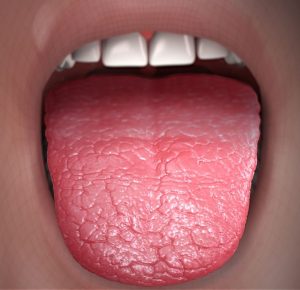The human body is extremely diverse and complex. For this reason, it’s very common that we are not aware of all the diseases that can affect us. However, it’s important to gain knowledge about lesser-known diseases and better understand why they develop. One of these diseases is Sjogren’s syndrome, which not everyone has heard of, but which can lead to serious consequences. If you want to know more about it, read this article to the end!
What is Sjogren’s Syndrome?
Sjogren’s syndrome is an autoimmune rheumatic disease whose main characteristic is dryness of the mucous membranes, especially in the mouth and eyes. It is named after Swedish physician Henrik Sjögren, who discovered it in the 1930s. It’s estimated to affect up to 2% of the population, which is considered quite high for a rare disease. Sjogren’s syndrome can affect anyone, although it is much more common in women over 40, especially those who already have another autoimmune disease. It’s important to highlight that not all cases of dry mouth and eyes are related to this disease. It is very important that if a person experiences these symptoms, they see a doctor as soon as possible to check what is really going on and to get the proper treatment.
What causes Sjogren’s Syndrome?
So far, no specific cause has been discovered for the emergence of this disease, although there are several hypotheses, such as those pointing to hereditary and genetic factors, or to infection by certain types of viruses and bacteria as a trigger for this syndrome. 
Symptoms of Sjogren’s Syndrome
Some of the main symptoms of Sjogren’s syndrome are:
- Dry eyes
- Dry mouth
- Sensitivity to light
- Blurred vision
- Sensation of having sand in the eyes
It’s important to note that these are just a few of the main symptoms and that the disease can manifest in many other ways, making it difficult even for specialists to identify at first glance.
How does Sjogren’s Syndrome manifest?
The first signs that a person has Sjogren’s syndrome occur when someone has recurring inflammation in areas with mucous membranes, mainly in the salivary and tear glands. This happens because there is infiltration of lymphocytes in the glands that produce these mucous secretions, making the body more dehydrated. Although it’s more common in the eyes and mouth, Sjogren’s syndrome can affect various other parts of the body, such as the skin, lungs, vagina, liver, pancreas, and kidneys. Such inflammation can cause a variety of symptoms, including:
- Joint pain
- Difficulty breathing
- Kidney problems
- Dry skin
It’s also worth mentioning that Sjogren’s syndrome is classified as either primary or secondary. Primary occurs when it appears on its own, and secondary when it is accompanied by another autoimmune disease such as lupus or rheumatoid arthritis, for example.
How is the Diagnosis Made?
Because it is a disease that can manifest in many ways, it is often difficult to diagnose Sjogren’s syndrome. When a person presents with some of the symptoms described here, several tests are carried out, but often these may also be confused with other diseases. For a doctor to make an accurate diagnosis, it is necessary to take the patient’s history and carefully perform specific tests to analyze the results. Only in this way can it be confirmed that the person has Sjogren’s syndrome, and not another disease.
How is the Treatment Done?
There is no definitive cure for Sjogren’s syndrome, and its treatments aim to act directly on the symptoms, as well as reduce the risk of complications that may arise and to ensure a calmer and more normal life. Therefore, it’s common for various treatment methods to be applied. Using eye drops and drinking plenty of water can help keep the person hydrated and quickly prevent dryness of the mucous membranes. In addition, certain foods that stimulate saliva production may also be recommended. When the problem affects the skin, doctors usually prescribe moisturizing creams. Another solution that is often used is repeatedly rinsing the nostrils with saline solution. Each case depends on the symptoms presented and the needs of each patient. As it is such a specific disease that requires much attention from the doctor, it is important for the person to know how to take good care of themselves and to follow all recommendations as best as possible. Although it is a rare disease, Sjogren’s syndrome can bring many complications for those who have it. For this reason, it is always important to know how to deal with it, especially in cases where diagnosis is so difficult. Understanding more about diseases like Sjogren’s syndrome is also understanding more about our own nature and the complexities of our bodies. And that, without a doubt, can help us in many aspects of our lives.











